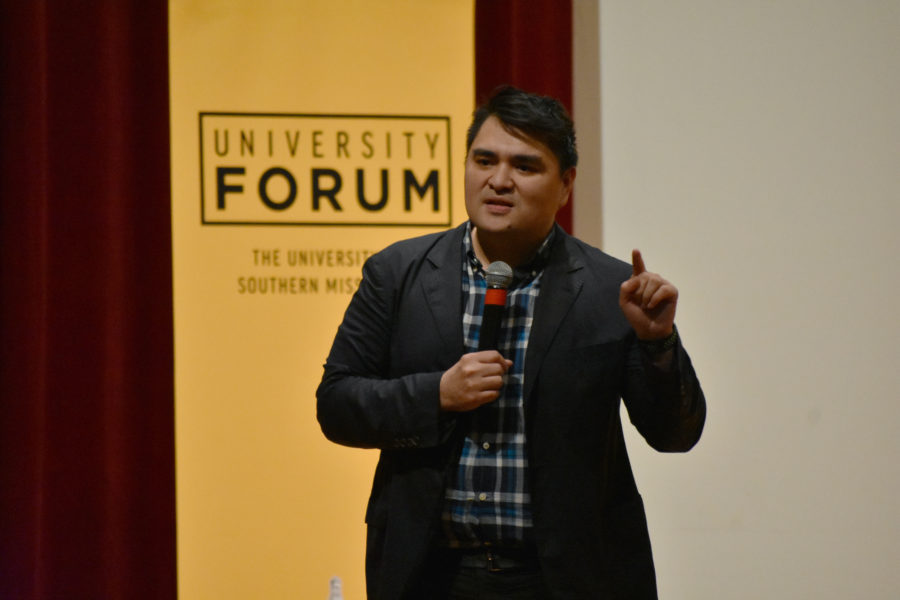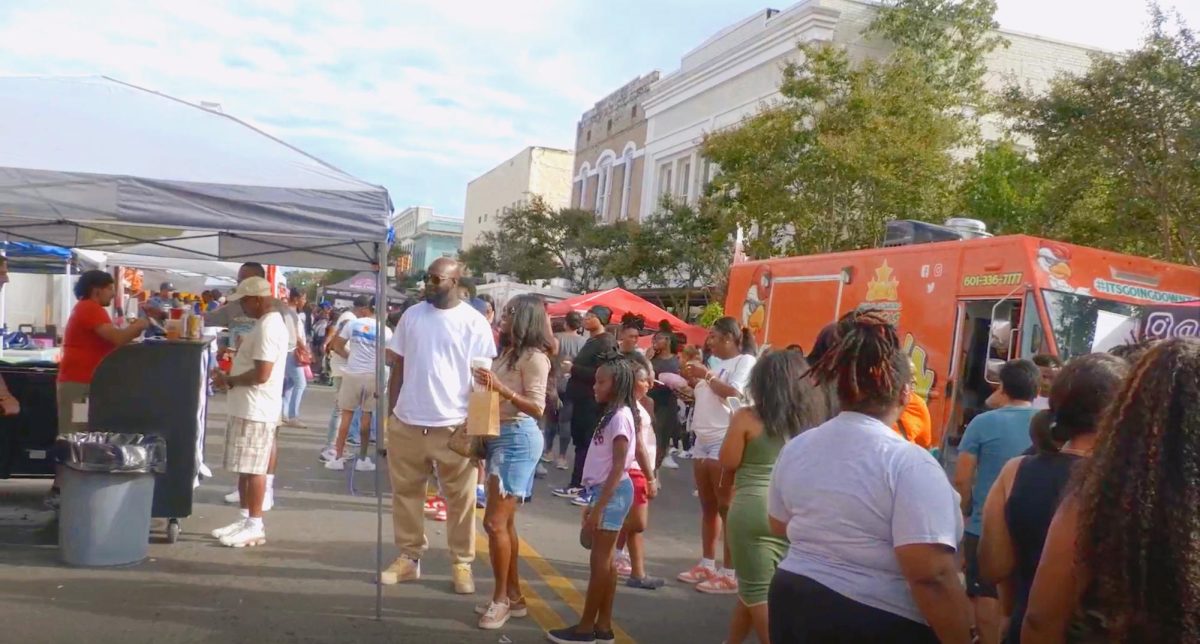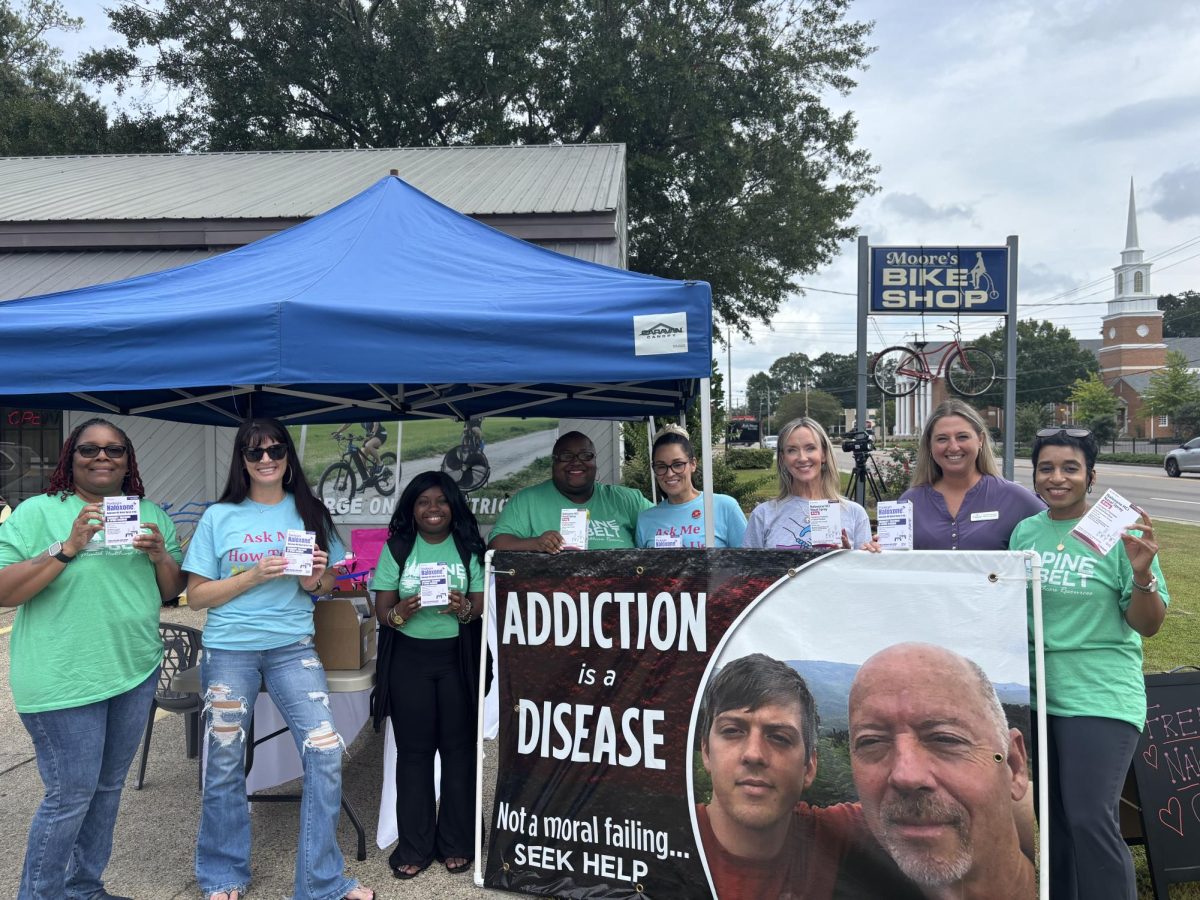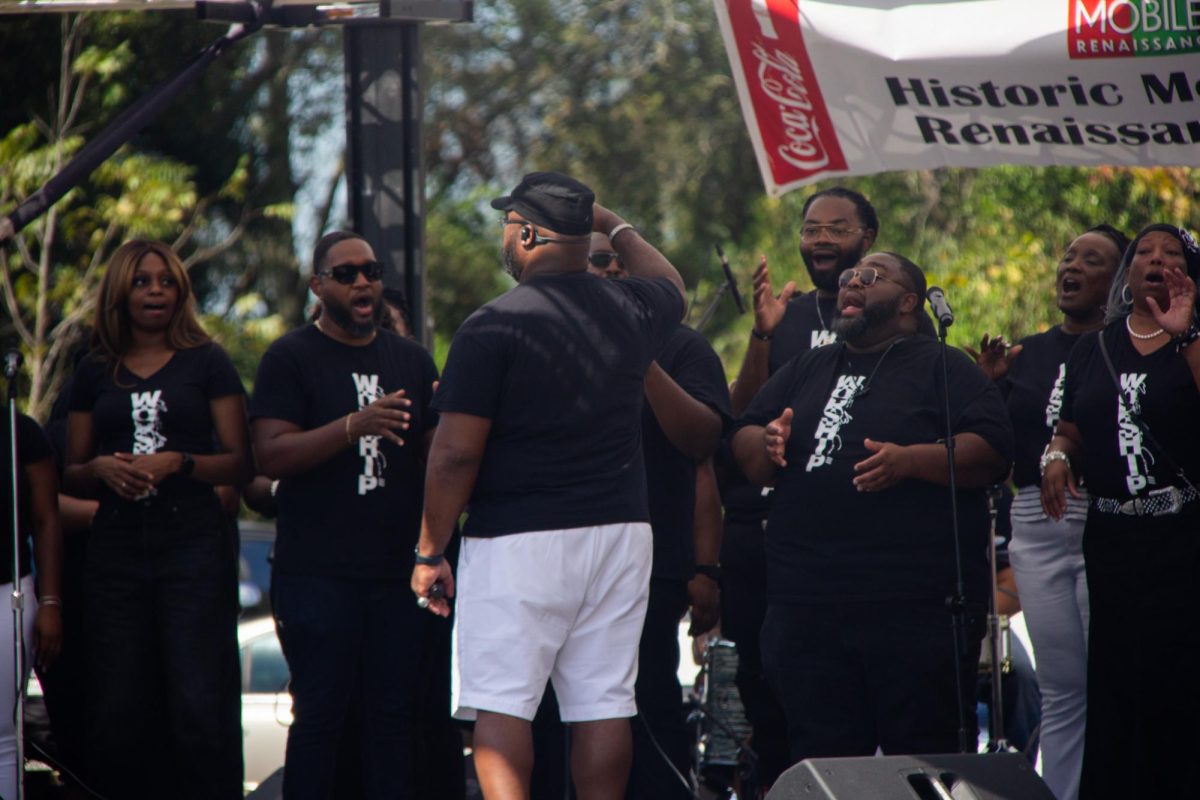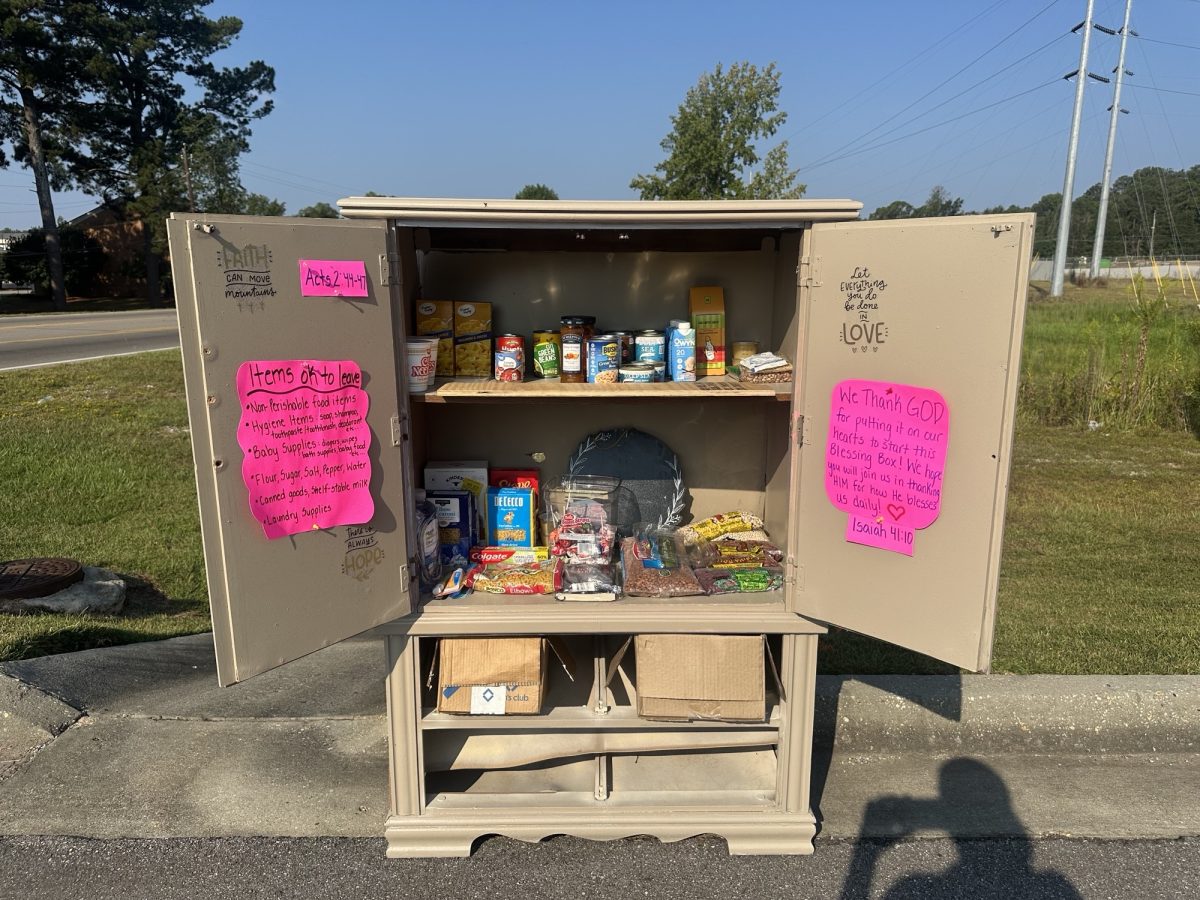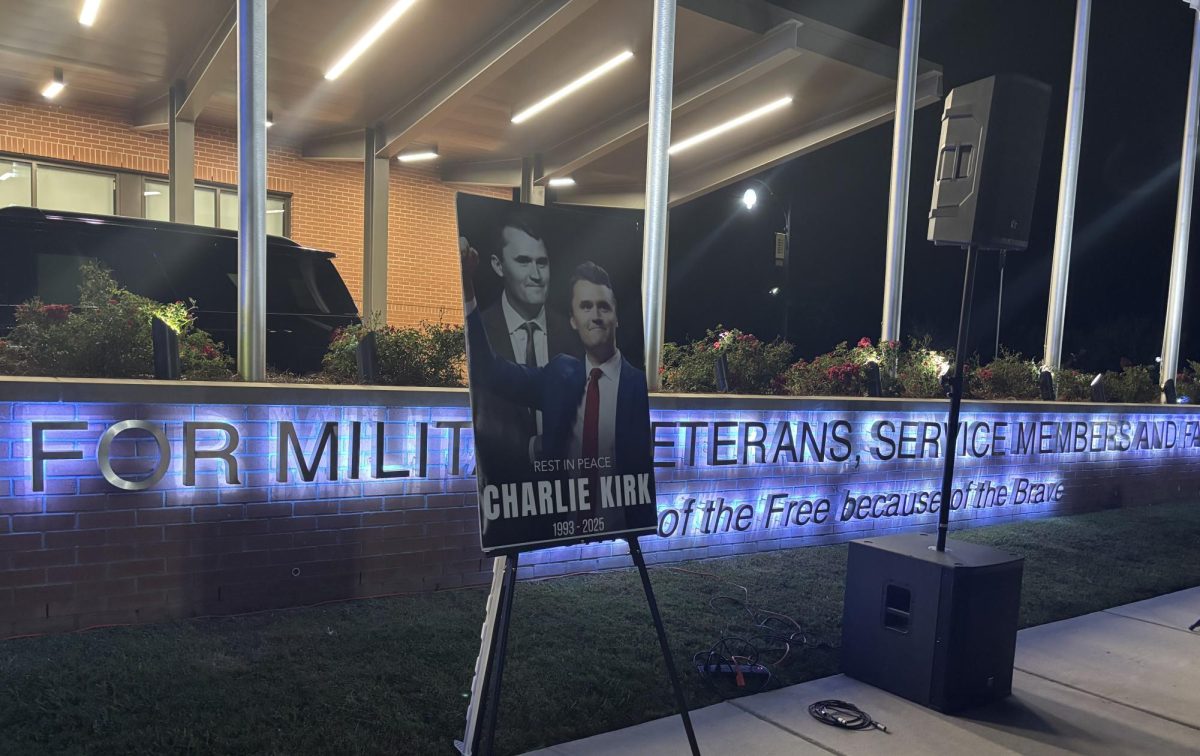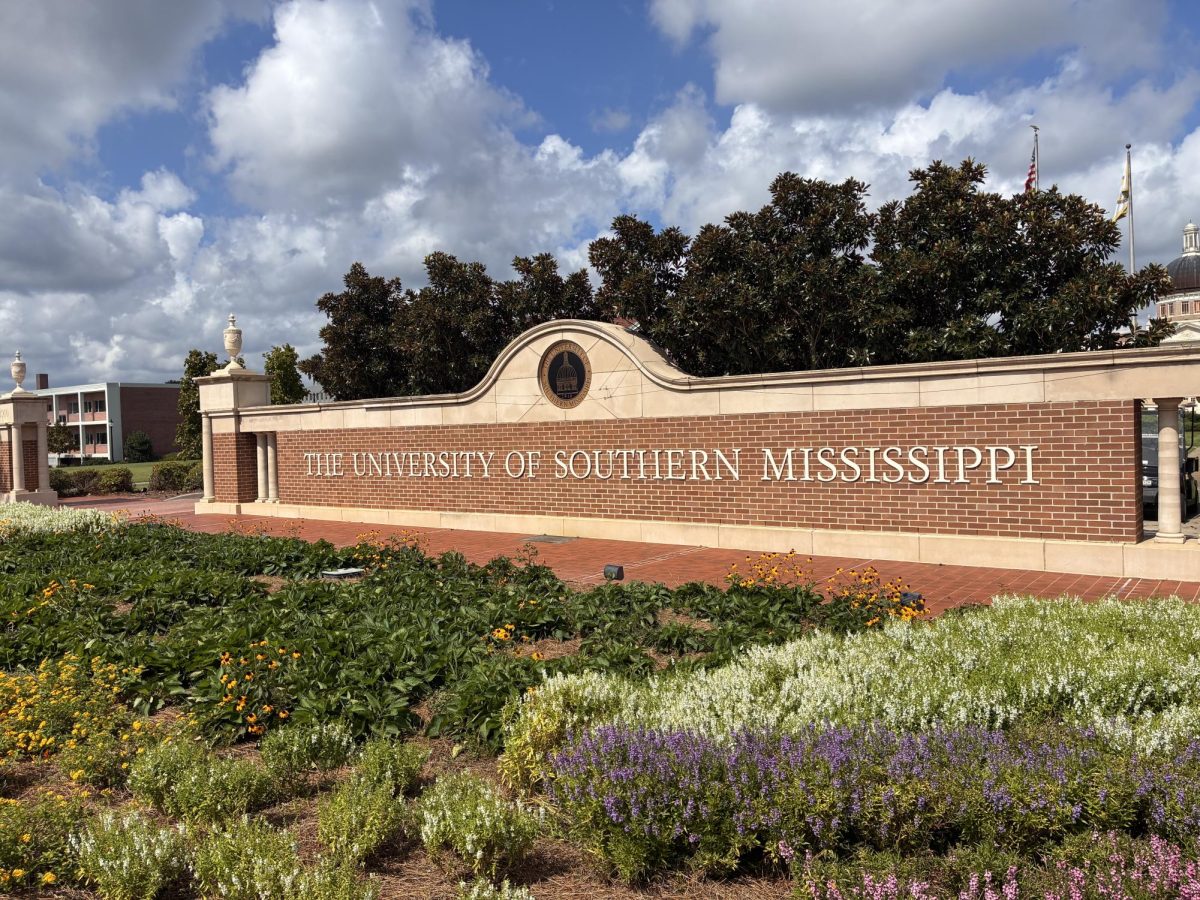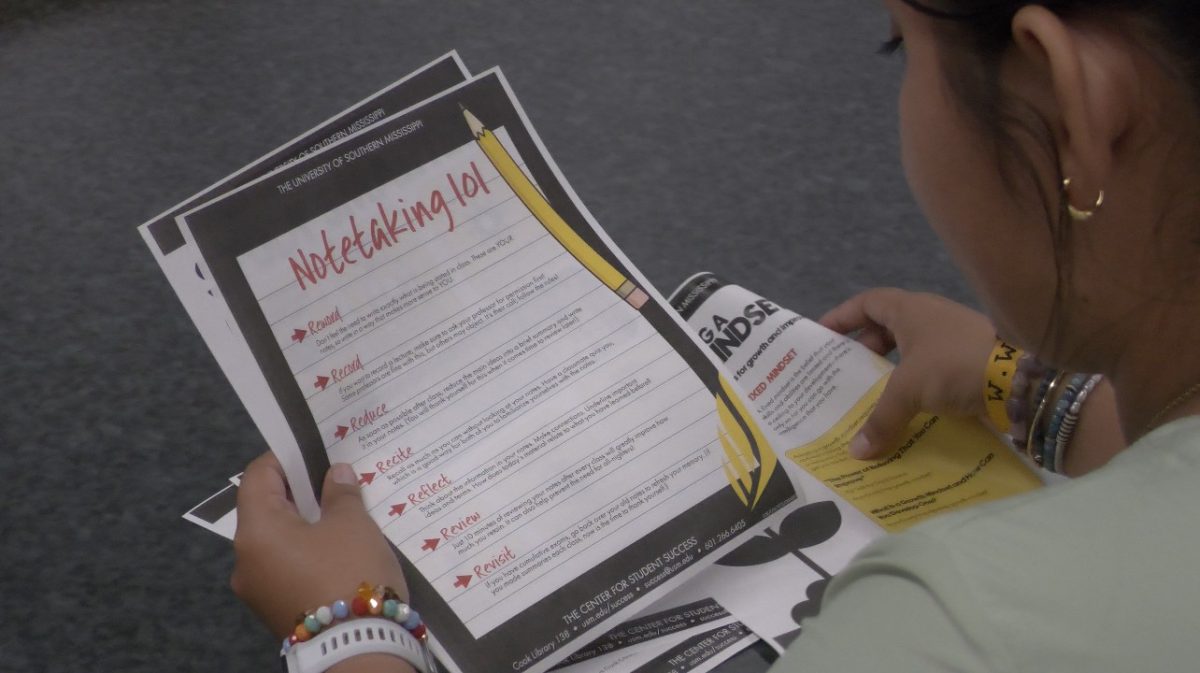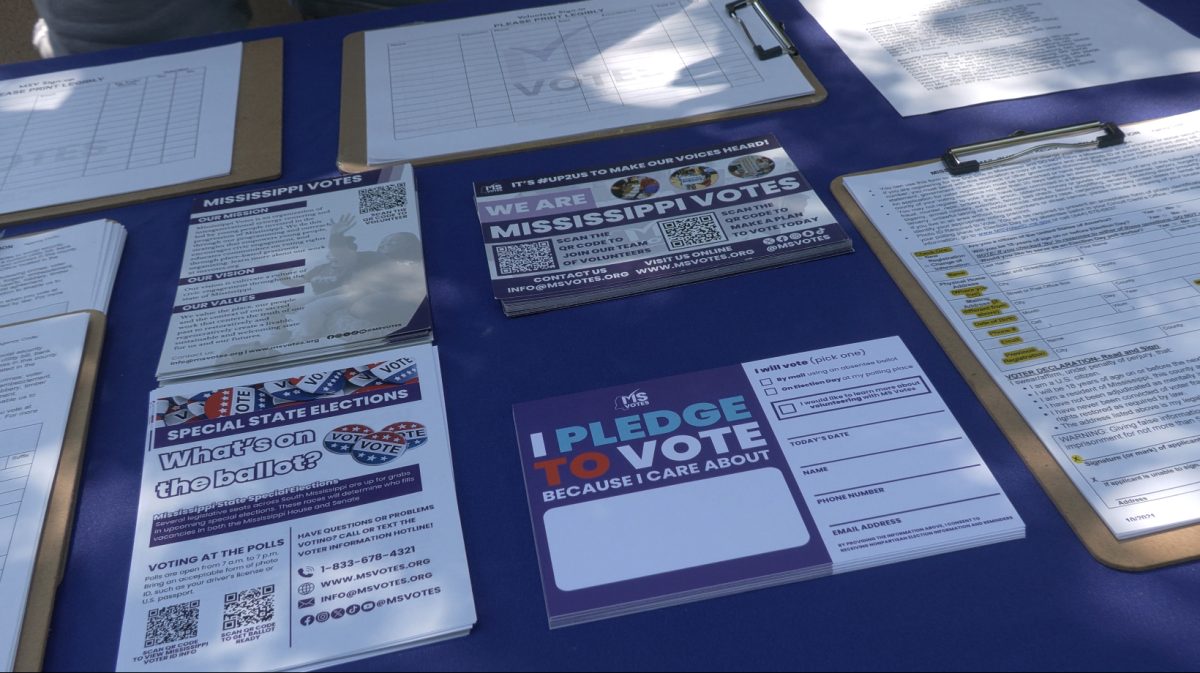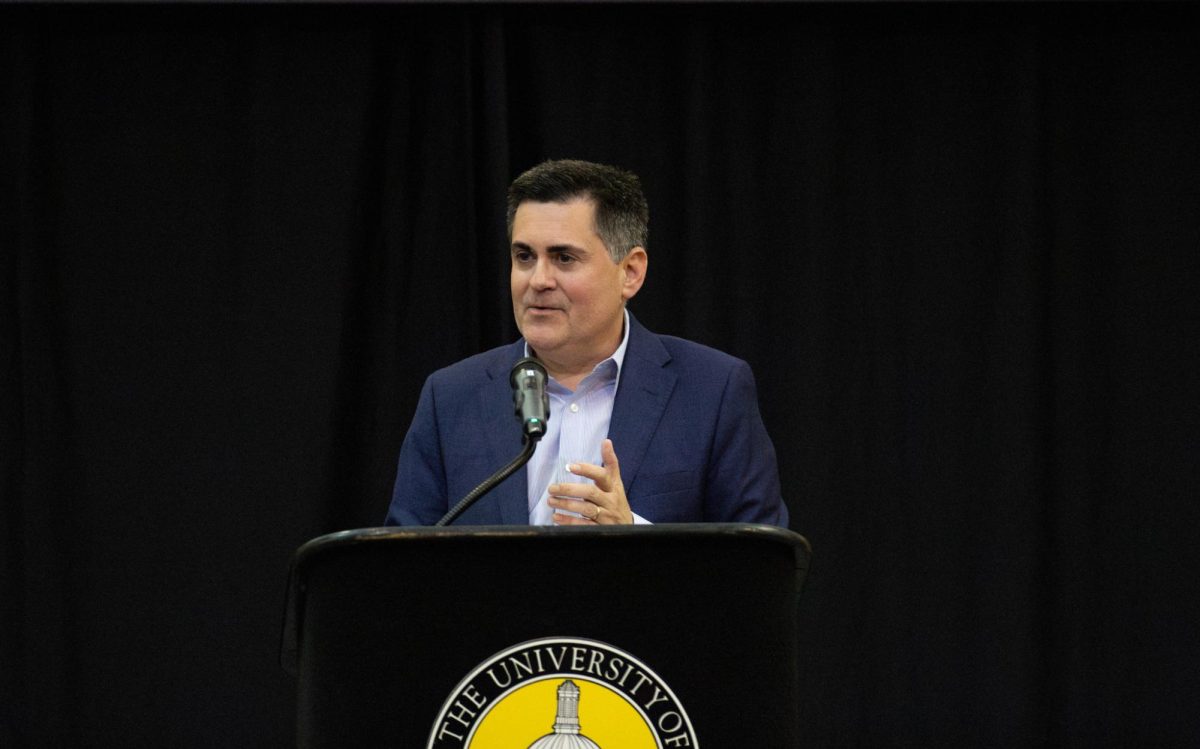“If people from ICE are here, can you at least wait to deport me until after I speak,” Pulitzer Prize-winning journalist and immigration rights activist Jose Antonio Vargas joked as he took the stage. Vargas was the last University Forum speaker of 2018 Tuesday, Oct.23.
Τhe founder of Define American, a nonprofit organization intended to open up dialogue about the criteria people use to determine who is an American, told his story of being an undocumented immigrant.
Vargas discovered he was not in the United States legally when he took what he thought was an authentic green card to the DMV in an attempt receive his driver’s license in 1997.
He hid his identity as an undocumented citizen from friends and coworkers until 2011 when he risked his career and revealed that he had migrated from the Philippines as a child without proper papers.
Vargas went on to describe the years he spent hiding his true identity and acknowledged that he had lied countless times on job applications about his citizenship.
“I learned that forgery was probably the highest offense. I will actually never be an American citizen because I kept lying about being one,” Vargas said.
He said legality has always been a construct of power.
“This is not about papers. This is not about laws,” he said. “Culture is politics. You cannot change the politics surrounding an issue until you change the culture surrounding the issue.”
Vargas described the help he received from the people around him after he admitted his status as an undocumented citizen. Vargas said his editor at The Washington Post Marcia Davis guided how he thought about his career and what he was trying to build in this country.
“When I was working at [The Washington Post] I was always so paranoid about everything. I always thought I was being judged for something I didn’t even know, and Marcia said, ‘Jose, the work has to be so good that they cannot disqualify you. This is about the work,’,” Vargas said.
Despite his belief that America is in the midst of the biggest cultural war in its history, Vargas still believes in the future of the country.
“I love America more than any country in the world. If I didn’t love it I would’ve left,” he said. “I really would love to see Mexico, I would love to see Europe, I would love to see my mom. But I decided to stay because this is my country.”
After the forum, students reflected on the importance of hearing Vargas’ story.
“It gives perspective from the other side. What we hear in the media is a negative point of view that lacks any kind of empathy,” junior public health major Lydia Thompson said. “Since [the negative view] is the only thing some people hear, that’s all they know. Hearing the testimonials of people actually affected and marginalized creates an emotional connection.”
Junior social work major Krystal Shull believes Mississippians need to hear stories directly from undocumented citizens.
“We have to educate ourselves on the problem and use our voices to inform people who have biases based on false information. We have to use our voices to give the 11+ million undocumented immigrants a voice,” Shull said.
Vargas noted the importance of the South in regard to changing the current culture.
“I think the future needs the South. What did William Faulkner say? ‘The past is never the past.’ We need Southerners for this conversation of a culture war. I think we have become victims of all the stereotypes that we hold about each other. Letting go of that is really hard, but we have to start doing that,” Vargas said.
After hearing Vargas speak, Thompson said she believes Southern Miss should start a chapter of Define American.
“Mississippi needs a place where undocumented people feel comfortable sharing their feelings and stories. Starting a chapter of Define American at USM would provide a safe environment for undocumented people and those in support of them,” Thompson said.
Vargas believes that speaking out about the lives of undocumented citizens is the beginning of change for America.
“I think undocumented people are a part of every other group of people in this country; black people, Native Americans, women of all races, who had to fight for what full citizenship actually means,” Vargas said. “As far as I’m concerned, I’m already an American. I’m just waiting on my country to recognize it.”

























